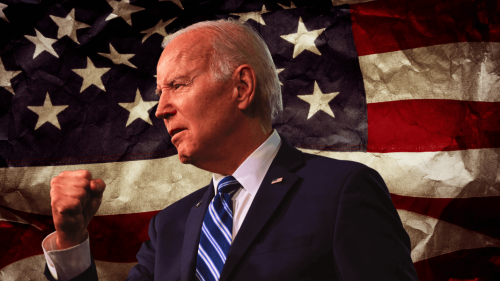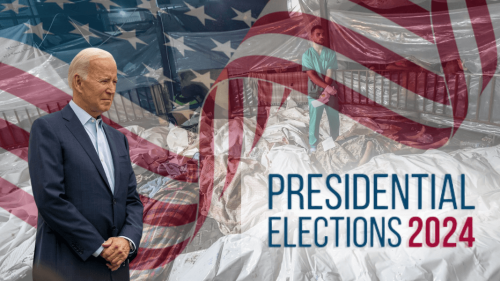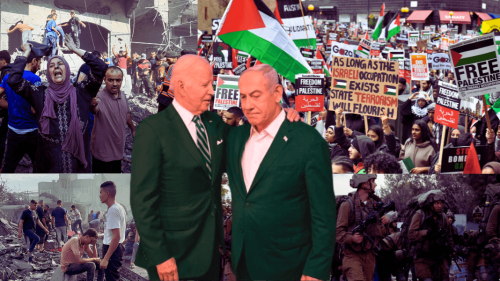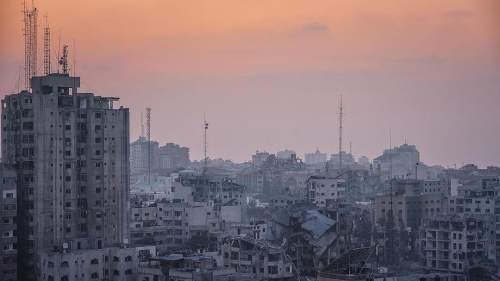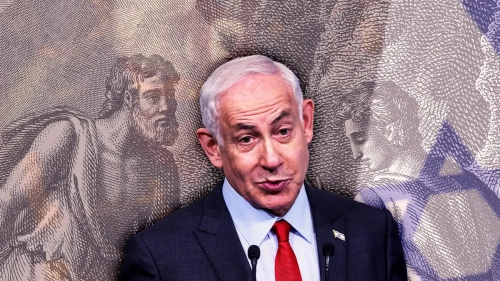On the Urgency of Consensus and Coalition Building
Recent interfaith rallies in support of Palestinians organized by American Muslims demonstrate that they are not alone in their struggle for just causes. It demonstrates the time has come to gather in order to bring about changes they desire. American Muslims now eagerly gather at such meetings as the Islamic Society of North America (ISNA) annual convention, which this year attracted more than 30,000 people. But it takes more than occasional rallies or sporadic participation in meetings for meaningful results. It requires that they work unceasingly to develop consensus among their own community as well as build coalitions with peoples of other faiths.
Despite the universal call of Islam and its founding of global community, the Muslims including those in America are still lacking in substantial unity. The American Muslim community is still mainly split between immigrants and African Americans. Imam Warith Deen Muhammad, a prominent leader of African American Muslims, in spite of his closeness to the Muslim immigrants community, still holds separate annual conventions of his group, even in the same city. This difference was also evident in the recent endorsements of presidential candidates for election. While the American Muslim Political Coordinating Council Political Action Committee (AMPCC-PAC) endorsed the Republican candidate Texas Governor George W. Bush, the Coalition for Good Government (CGG) with its mostly African American membership, endorsed the Democratic candidate Vice President Al Gore, thus effectively canceling each other's votes.
The worldwide Islamic Ummah consists of a diverse group of people with widely differing racial, ethnic and cultural backgrounds. The American Muslim community represents a microcosm of this global community. Despite this great diversity, however, Muslims universally possess a common identity by their shared faith in revealed sources of the Qur'an and prophetic tradition of Muhammad (saw). Thus connected, American Muslims have made great strides in their collective identity formation. It goes to the credit of this community that there are few towns where a few dozen Muslims reside that does not have a mosque, Islamic center or an Islamic society. They are also establishing Islamic schools for their younger generations. These schools are a showcase illustration of unparalleled harmony alongside great racial and cultural diversity that is a unique characteristic of Islamic tradition.
Let us understand that differences (ikhtilaf) arise naturally because God created humans as unique individuals with different talents and abilities. The ability to differ is a manifestation of the creative power and wisdom of God. It is insurance against rigidity, and for diversity. Differences open up minds to new ways of thinking, stimulate intellectual development and thus are essential for human progress. The Prophet of Islam encouraged it by saying, "Differences (ikhtilaf) in my Ummah are a blessing." Therefore, all Muslim organizations, local as well as national, should invite members and community representatives to listen to divergent and contending views on all of their issues and to critically analyze them. These discussions should be carried out openly and freely but two restrictions must first apply. One is that these discussions be conducted decently with a proper observance of Islamic etiquette (adab). Second, care should be taken not to violate the integrity and unity of community. Thus the differences that become a source of discord and dissension to the detriment of community (fitna) must be shunned. Such differences (khilaf) are condemned by both the Qur'an and Sunnah in no uncertain words.
An effective way of solving differences is by shura or mutual consultations. It is an Islamic requirement at all levels of the community from home, family to state in matters between two or more persons. An essential element of shura is to communicate, interact and discuss regularly and frequently. However, most observers including Dr. Aminah McCloud, Professor of Religious Studies at DePaul University, Chicago, a prominent African American scholar who has written extensively on her community, notes that there is a communication gap between immigrant and African American Muslims. If they lived in close proximity to share their interests, it would have helped. However, with few exceptions, immigrants, particularly Arab and Indo-Pakistanis that constitute a majority of them, prefer not to live in inner city Black neighborhoods and would rather stay within their own cultural group, where they feel more secure and comfortable. As a result, there is little interaction between them and they are not very appreciative of the needs and problems of each other. The organizations that grew out of this situation are predominantly of one group or another. Frequent contacts between immigrants and African American groups and involving them into decision-making at the top echelons of their respective organizations may remedy this. The second- and third-generation Muslims that are not burdened with cultural baggage of old-world generation and youngsters coming out of Islamic schools have better prospects of reaching out to each other. These youth are much more open and communicative across and beyond community.
Once the discussion and analyses of issues is completed, it is time for decision. Ijma, or consensus is an important part of Islamic system of decision-making. It is required on all issues that affect community members collectively. Ijma means that there is overall unity on issues that impact the community as a whole and that community approves of the decisions. Such a consensus would crystallize major issues of the community upon which their organizations could then take collective action. While the faith identity of American Muslims is clearly delineated through its congruence with universal Ummah, it is through this local consensus that their collective political identity in the American milieu would emerge.
For the development of consensus, American Muslim groups must bring their varying interests and preferences to a common agenda. While immigrants inherit a long Islamic tradition, most African Americans are new to Islam and, therefore, need a more comprehensive understanding to achieve compromises within the broad guidelines of Islam. While immigrants are much more Ummah-oriented, African Americans because of their past history, are more anxious for securing social justice. Their differences, however, are a matter of relative preference only. For example, immigrants emphasize fighting the bad publicity and stereotyping of Islam and Muslims that goes on in the media. African Americans emphasize fighting crime and drugs in their neighborhoods. They both agree on their concern for civil rights, but immigrants are focused on repealing use of secret evidence whereas African Americans are focused on affirmative action. African Americans are traditionally affiliated with the Democratic Party; immigrants are not attached with any one party. These are some of the immediate issues that need resolution. Even a cursory glance would show that there is much commonality between these issues and the differences could be easily resolved if their representatives would sit together and work them out. They need to build confidence and trust through closer association and consultations among them.
Much more important is their almost complete agreement, or unanimity, on long-term goals. It is urgent, therefore, that short-term goals are worked out soon so that they could plan together the long-term strategies that would empower community in all essential areas. There is a consensus among past and present Islamic jurists of the Ummah that wherever Muslims take up their residence, they must as a community (ala wajh al-kifaya) do all that is necessary to ensure their safety and welfare and above all, the dignity of Islam. Dr. Taha Jabir al-Alwani, Chairman of the American Fiqh Council and President of the Graduate School of Islamic Social Sciences states categorically that it is the duty of American Muslims to protect their rights (huquq) and that they cannot abandon or ignore the safeguarding of their necessities (dharoorah). Therefore, American Muslims must empower their community both politically and economically. To stay put, as part of America without actively pursuing Muslim interests is not justifiable on any ground. Furthermore, for the progress of Islam and its community in America, it is vital that future generations are given full attention through training and education programs to make them conscious of the requirements of their identity and aware and motivated to utilize their energies for uplifting their community.
Moreover, it is important that Muslim Americans interact with and work for what is good and decent (al-maruf) for other Americans. As part of the Islamic dawa (outreach) it is their duty to provide the American public with accurate information about Islam and involve them in their activities. They should promote morally sound principles and practices in the American society.
"Muslims should be conservative enough not to bargain their din but liberal enough to seize any political opportunity to form alliances with others having shared interests", remarks Professor Sulayman Nyang of the Howard University, a respected member of the Islamic community. The community members and organizations need to take this advice seriously and act upon it in right earnest. For starters, as Dr Aslam Abdullah, a journalist and known activist suggests, this dialog may be initiated with the NAACP and other similar organizations. After all, Islam is for providing peace (salam) at all levels along with ensuring fairness and justice (adl) and worldly welfare and happiness (maslahah) for all of humankind.
__________________________________
Dr. Siraj Mufti recently retired as a chaplain from the U.S. Department of Justice and previously worked as a research professor at the University of Arizona. He now lives with his wife in Tucson, Arizona.








